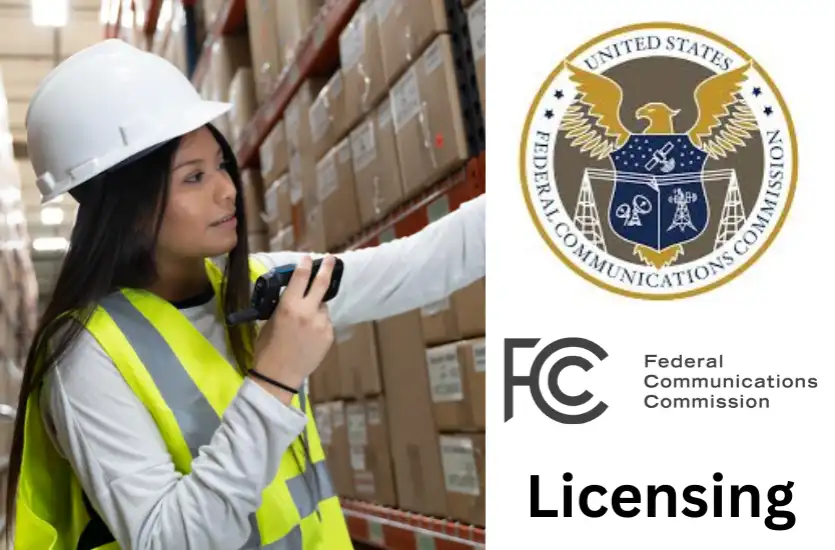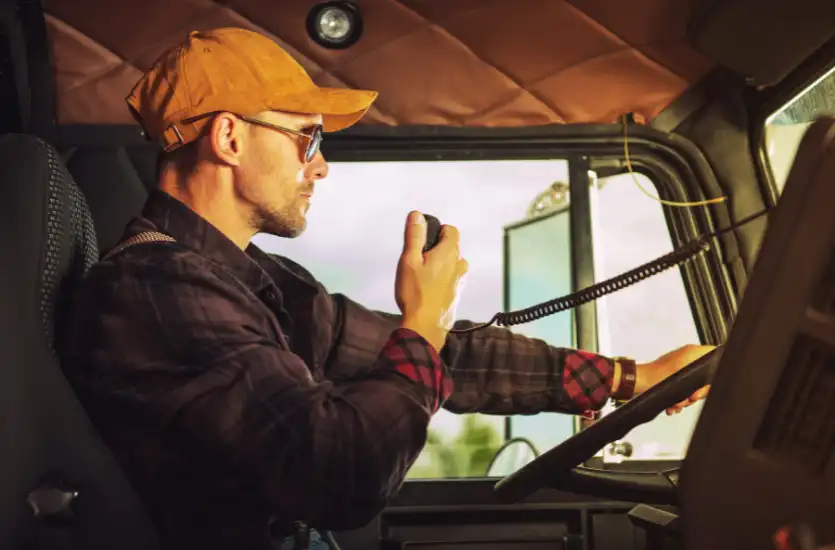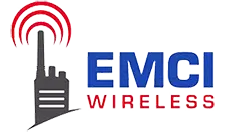When the Federal Communications Commission (FCC) was created under the Communications Act of 1934, its mission was to oversee and regulate radio, telephone, and telegraph communications. Over the years, the FCC has expanded to include modern technologies, but radio communication remains at the heart of its oversight, especially for commercial use.
Businesses that rely on two-way radios, from construction to transportation, must follow specific FCC regulations to avoid legal issues. EMCI Wireless, a Motorola channel partner serving southern and central Florida, is here to help businesses understand and comply with these regulations, making two-way radio communication both reliable and safe for everyday operations.
What Is Considered “Commercial Use” for Two-Way Radios?
Commercial use refers to radios used by businesses, organizations, or institutions to support internal communication. These radios help employees coordinate tasks, manage security, and improve overall team collaboration. Unlike personal or recreational radios, which are used for casual or hobbyist activities, commercial radios are tools for professional settings where communication is a necessity for effective operations.
Industries like construction, transportation, hospitality, logistics, and manufacturing rely heavily on two-way radios to connect teams across large spaces, multiple locations, or even different job sites. For example, construction crews use them to communicate across a job site, transportation companies rely on them to keep drivers in touch with dispatchers, and hospitality teams coordinate event management through instant communication.
The primary distinction between commercial and personal use is the purpose. Commercial two-way radios are designed to meet the demands of businesses, with features that support large-scale operations, privacy, and broader coverage areas. These systems also often require FCC licensing due to the radio frequencies and power levels involved, making them different from unlicensed personal radios used in recreational settings.
The Communications Act of 1934
Before we get into the criteria for licensing commercial two-way radios, let’s talk a bit about the Communications Act of 1934 and how it still applies today. Passed nearly a century ago, the Act unified the regulation of telephone, telegraph, and radio communications, which had previously been governed separately. The Federal Communications Commission (FCC) was created to oversee these industries, establishing a centralized authority for managing and regulating communications.
As technology advanced, the Act has been updated to include new forms of communication, such as broadcast television, satellite communications, and the internet. These updates introduced new rules and standards to accommodate emerging technologies while continuing to regulate established ones like two-way radios.
For commercial two-way radio users, these changes have affected frequency assignments, power limits, and licensing rules, making sure communication remains organized and interference is minimized. Though the Communications Act was written decades ago, it still forms the backbone of communication regulation, providing the structure needed to manage both older and newer technologies consistently and reliably.

The Six FCC Criteria for Licensing Commercial Two-Way Radios
Now, let’s cover the criteria that your commercial operations need to understand for appropriate licensing and to make sure your use of two-way radios remains lawful.
1. Purpose of Use
The purpose of two-way radio use determines whether you need an FCC license. If radios are used for business, such as coordinating work tasks or managing security, a license is often required.
This applies to industries like construction, hospitality, logistics, and transportation, where reliable communication is necessary for day-to-day operations. On the other hand, recreational use, such as radios used by hobbyists or personal groups for leisure activities, typically doesn’t require a license.
2. Location of Use
Next up is the geographical location. The FCC allocates spectrum differently in urban and rural areas. In dense, urban regions with heavy radio traffic, the FCC may assign specific frequencies to avoid interference between multiple users. In contrast, rural areas might have more flexibility, with less competition for frequency space.
Businesses operating across multiple locations or regions must consider how each location’s population density and radio traffic may affect their licensing needs, as the FCC’s jurisdiction and frequency allocations can vary significantly based on location.
3. License Type
There are various license types depending on the nature of commercial use. The Business Radio Service (BRS) and Industrial/Business Pool frequencies are commonly used for commercial purposes. The license type also depends on whether you need shared or exclusive frequencies.
Shared frequencies are open to multiple users, whereas exclusive frequencies are reserved for a specific business or entity, which can provide greater reliability and privacy. The choice of license type affects the spectrum businesses can access and what they need to do to maintain legal operation.
4. Emissions and Frequency Band
The frequency band used by two-way radios, such as UHF or VHF, also determines whether a license is required. UHF, operating in a higher frequency range, is often used in urban areas and indoors due to its ability to penetrate buildings, while VHF is more suited for outdoor, rural use.
The FCC also regulates power limits and emissions to prevent interference with other communication systems. Businesses need to operate within these limits to avoid crossing into unauthorized frequencies, as different bands have different requirements based on how they impact the spectrum and other users.
5. License Filing
The process of filing for a license with the FCC is done through the Universal Licensing System (ULS). Businesses must submit an application that outlines their intended use, location, and other technical details.
Once submitted, the FCC reviews the application and assigns an appropriate frequency and power limit for the business’s radio communications. Licensing fees can vary based on factors like the frequency and the duration of the license, which typically lasts ten years.
6. Rules & Regulations
Commercial two-way radio users must follow specific rules and regulations set by the FCC to avoid fines or interference with other users. This includes using only the frequencies for which they are licensed, adhering to power limits, and avoiding activities that may cause interference with public safety or other communication services.
Unauthorized frequency use or failure to follow guidelines can lead to penalties and even license revocation. It’s important for businesses to stay informed about any changes to FCC rules and to conduct regular audits of their radio systems to remain compliant.
Consequences of Not Complying with FCC Regulations
Speaking of non-compliance with the FCC, doing so can have some serious legal ramifications. The fines for operating without a license can be steep, with penalties reaching up to $10,000 for willful violations of the Communications Act. Even minor breaches of FCC rules can result in fines of up to $500 per violation. If violations continue, the FCC can impose additional fines of up to $500 per day, making non-compliance an expensive mistake for businesses.
In addition to financial penalties, non-compliance can lead to business disruptions. The FCC has the authority to revoke access to communication channels, which could severely hinder day-to-day operations that rely on two-way radios for coordination and safety. Losing access to these channels could result in some pretty serious communication breakdowns.
One of the greatest consequences of non-compliance is harmful interference with other communication systems. Unlicensed or improper radio use can interfere with public safety frequencies, endangering emergency services. It can also affect other businesses, causing interruptions in their communications and leading to potential legal disputes or penalties.
Common Myths About FCC Licensing for Two-Way Radios
Unfortunately, while it is less common in commercial space, there are some misbeliefs about two-way radio usage.
Myth: Low-power radios don’t require a license.
Truth: While some low-power radios, such as FRS (Family Radio Service) radios, don’t require a license, many business-grade radios still do. Even at low power, the frequency and type of use often dictate whether a license is needed.
Myth: If I’m not using public safety radios, I don’t need a license.
Truth: Commercial users, regardless of the purpose, may require a license. The FCC regulates all commercial communications to prevent interference and prioritize proper frequency use, not just public safety radios.
Myth: As long as I don’t cause interference, I can use any frequency.
Truth: Unauthorized use of frequencies can result in heavy fines, even if no interference is caused. Businesses must operate on assigned frequencies, which are regulated to avoid conflicts with other users.
Myth: Only big companies need to worry about FCC licensing.
Truth: FCC regulations apply to all businesses, regardless of size. Small businesses using two-way radios still need to comply with licensing requirements to avoid penalties.

How to Stay FCC Compliant as a Commercial Two-Way Radio User
Staying compliant with FCC regulations is non-negotiable for any business using two-way radios. Following these steps will help you avoid fines and keep your communication systems running without interference—pun intended:
- Annual audits and frequency coordination: Regularly review your radio systems and assigned frequencies to make sure they meet current FCC requirements.
- Conduct regular compliance checks: Periodically assess your radio use to confirm that it aligns with your license terms, such as power limits and proper frequencies.
- Work with frequency coordinators: Collaborating with professional frequency coordinators can help prevent interference with other radio users and keep you on the right channels.
- Stay updated on FCC regulations: FCC rules can change over time. It’s important to keep track of updates that may affect your business and adjust your practices accordingly.
- Use available resources: The FCC website offers helpful tools and information to guide businesses through compliance. Consulting with professional advisors can also provide clarity.
- Train your staff: Make sure employees understand the legal requirements for using two-way radios, including the importance of operating within licensed parameters.
- Maintain your equipment: Keep your radio equipment properly maintained and in compliance with FCC technical standards to avoid any legal issues.
Stay Compliant with Commercial Two-Way Radios
Staying compliant with FCC regulations is super important to operating commercial two-way radios legally and without interruption to your business operations. Licensing prevents fines, interference, and disruptions while keeping communication clear and reliable.
By following FCC guidelines and using radios responsibly, businesses can maintain productivity and avoid costly legal issues. If you’re unsure about your licensing needs or want expert guidance, EMCI Wireless is here to help.
As a trusted Motorola channel partner, we offer the support and expertise businesses in Southern and Central Florida need to stay compliant with commercial two-way radios. Contact us today for a free consultation.






